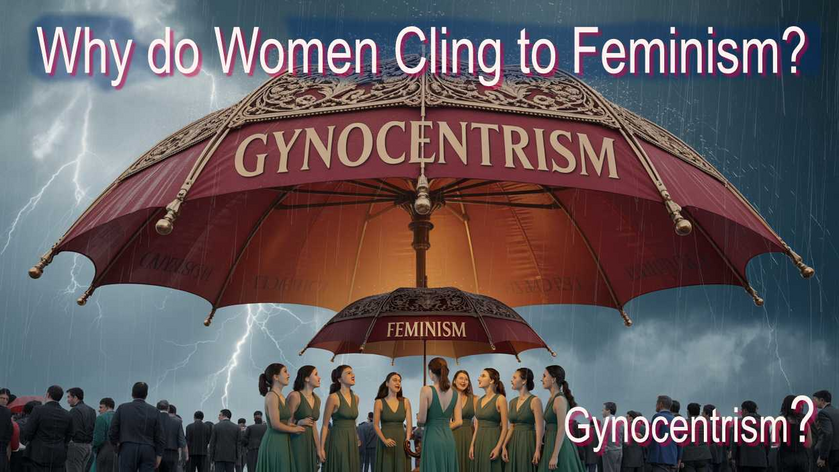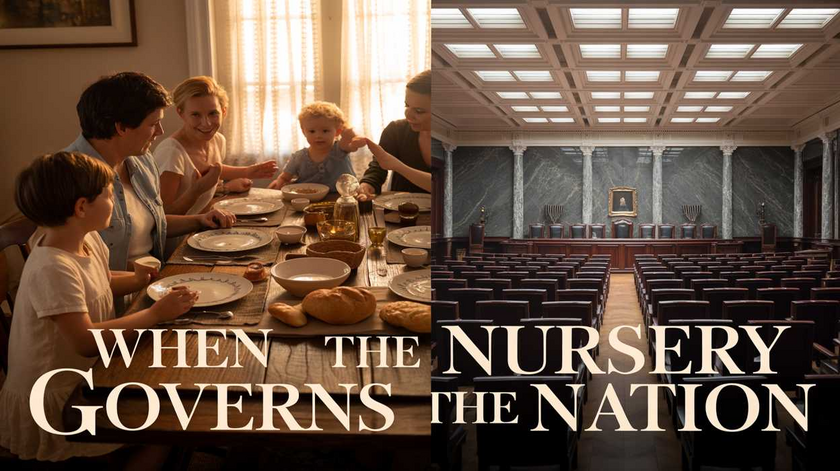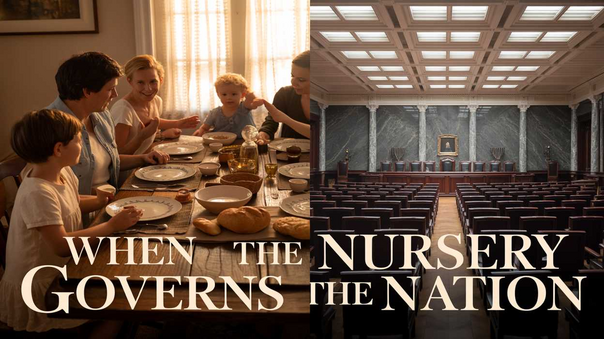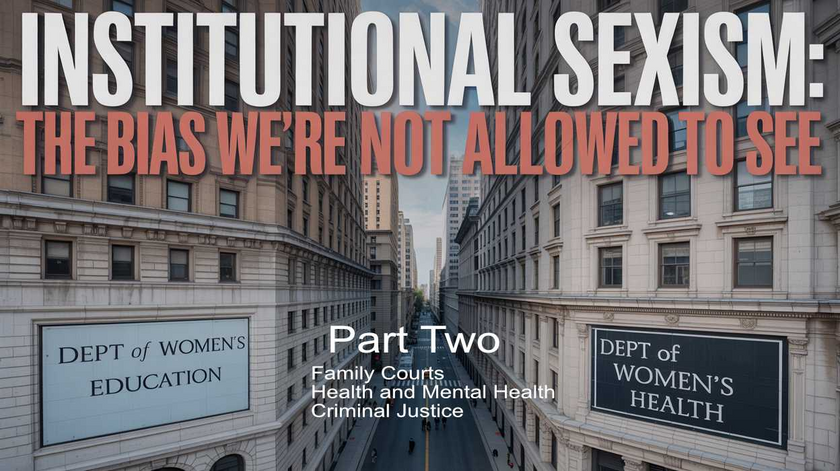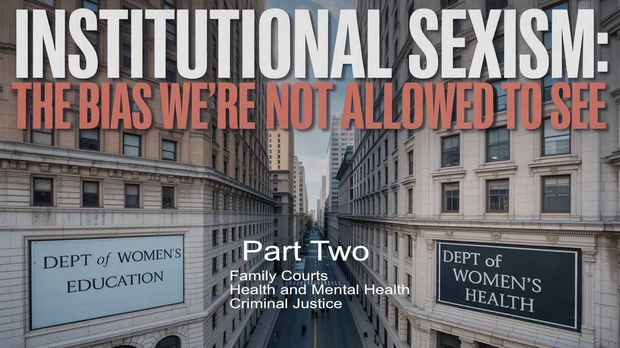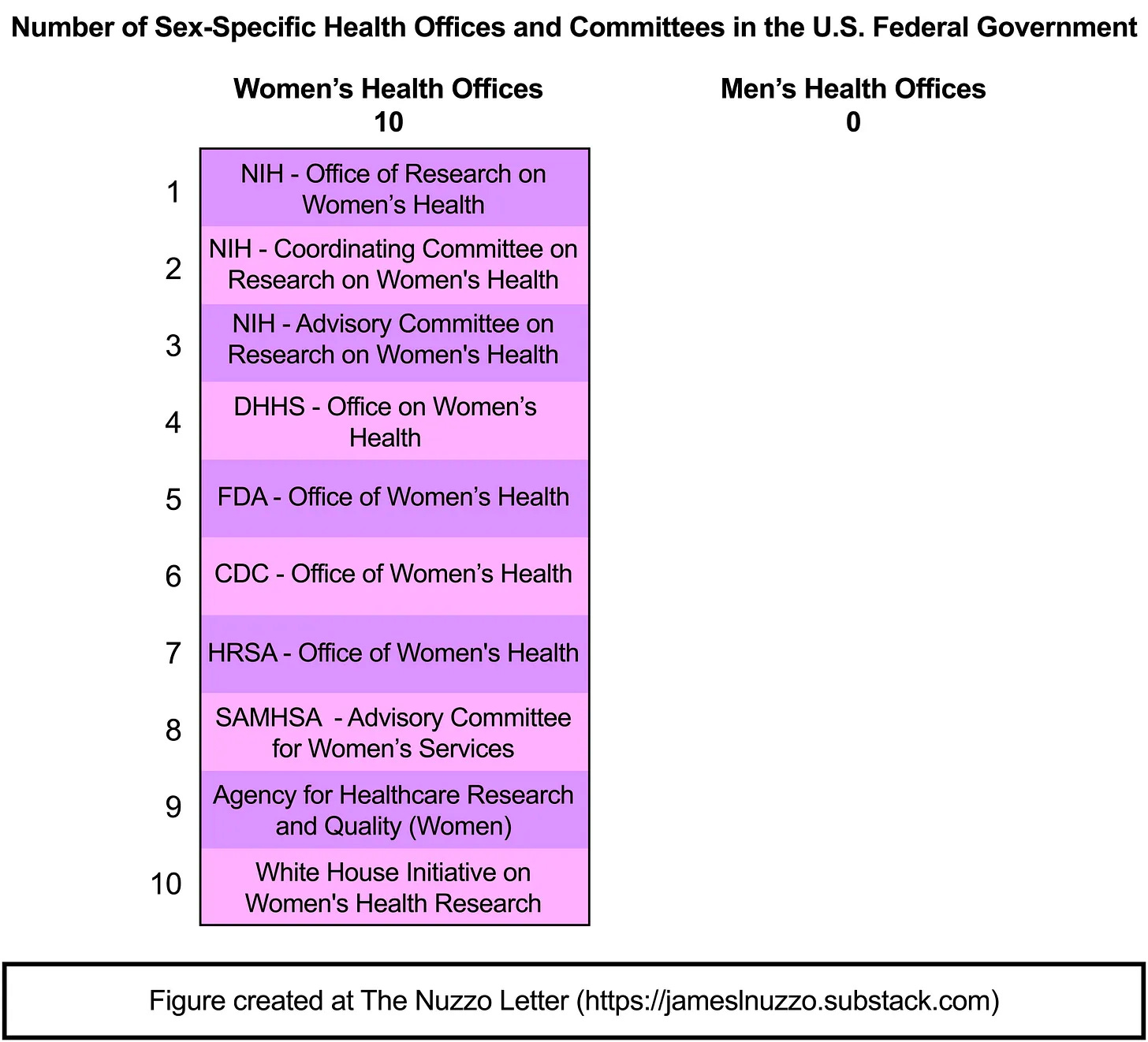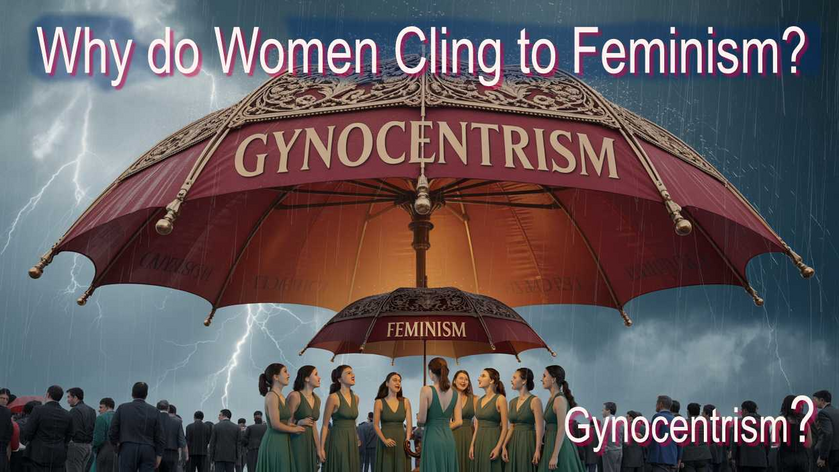
Why do Women Cling to Feminism?
There's a powerful force at play that binds both men and women to the belief that feminism stands for equality. Despite clear evidence to the contrary, public perception remains steadfast. This strong adhesive, I believe, is gynocentrism—an often unnoticed bias that influences both genders to avoid confronting the truth.
But what exactly is gynocentrism? It's the pervasive belief that women's needs, desires, and perspectives should take precedence. This societal tendency elevates women's experiences to a central position in discussions of justice, equality, and societal norms. Remarkably, many are unaware of this bias within themselves; it operates subtly yet significantly in everyday life.
Feminists, whether knowingly or not, have harnessed gynocentrism as a tool to shield their ideology from scrutiny. By framing their movement around the principle that women's well-being and viewpoints must be prioritized—a core tenet of gynocentrism—they've built an ideology that resonates not just with women, but also with men who unwittingly accept this framework.
1. Emotional Investment and Identity
Feminism offers an emotionally charged, identity-affirming cause that, for many women, becomes central to how they define themselves and their place in the world. Gynocentrism amplifies this by creating a cultural framework in which women’s experiences are not just important, but inherently more valid and deserving of attention than men’s. Within this framework, feminist ideology is elevated from a political stance to a moral imperative — a movement that feels inseparable from one’s personal worth and identity.
Because gynocentrism positions women’s struggles as uniquely significant, feminism is perceived not simply as one of many social causes, but as the cause — the rightful focal point of empathy, policy, and moral concern. This emotional elevation makes feminist beliefs harder to question, because doing so feels like a denial of women’s legitimacy or suffering. For women, this gynocentric framing allows personal grievances to be folded into a broader, sanctified struggle, making feminism both empowering and emotionally protective.
Men, too, are drawn into this framework. Socialized to prioritize women’s needs and seek moral approval through deference, many adopt feminist ideals not out of conviction, but out of a sense of duty or fear of moral condemnation. Biology also plays a role, as evolutionary pressures have shaped men to be caretakers and protectors, further reinforcing this inclination. In this way, gynocentrism doesn’t just support feminism—it shields it, fuels it, and emotionally compels loyalty to it, even in the face of contradictory evidence or unfair outcomes.
2. The Power of Groupthink and Social Reinforcement
Feminism thrives on social reinforcement, and groupthink plays a significant role in maintaining this ideological strength. In a gynocentric society, the idea that women’s perspectives should dominate is not only normalized but encouraged, creating an environment where challenging feminist ideals feels uncomfortable or even socially unacceptable. This dynamic is further amplified by women’s strong in-group bias—a well-documented psychological tendency to show loyalty, empathy, and moral deference to other women, often at the expense of fairness to those outside the group. In feminist circles, this in-group loyalty reinforces a collective identity centered on shared grievances and moral superiority, making dissent feel like betrayal. The power of groupthink is sustained by constant affirmation that women’s needs are paramount, and anyone questioning this premise risks social ostracism—or worse, being labeled a misogynist. This creates an atmosphere where individuals—especially men—find it difficult to voice opposition, as doing so is perceived not as a critique of ideas, but as an attack on women themselves and the gynocentric norms that have been so deeply entrenched in society.
3. Fear of Losing Hard-Won Progress
For many women, feminism is not just a political or social movement — they have been led to believe that it’s the framework that secured their rights, safety, and dignity in a historically male-dominated world. This association makes feminism deeply personal and emotionally charged. Gynocentrism reinforces this by framing women’s societal gains not merely as important milestones, but as personal validations of their identity and worth — making feminist progress feel inseparable from female value itself. It casts any challenge to feminist orthodoxy — even a measured critique — as a threat to women’s safety, freedom, or status.
As a result, the push to prioritize women’s rights over men’s is not just about fairness or equality; it becomes a reflexive act of self-preservation. For women who have internalized feminism as synonymous with progress and protection, any perceived rollback is existential. The fear is not just that rights might be lost, but that their societal value might be diminished.
Gynocentrism amplifies this anxiety by maintaining a singular focus on women’s needs, portraying them as the perpetual underdogs, regardless of social context or material advantage. This selective lens obscures male suffering, sidelines men’s rights, and downplays the unintended consequences of a one-sided narrative. In doing so, it creates an emotional and moral environment where any call for balance or shared empathy is viewed with suspicion — or even hostility — because it feels like a threat to hard-won ground.
4. Media and Cultural Narratives
The media and cultural narratives overwhelmingly reflect and reinforce gynocentrism, often framing women as the default victims and men as the default perpetrators. Feminism, which aligns itself with this framework, benefits from the widespread acceptance of these skewed narratives. Media portrayals of gender dynamics rarely include nuanced views on how both men and women can suffer from societal issues. Instead, they lean heavily on the gynocentric view that women’s needs—whether related to equality, protection, or support—should always take precedence. By embedding this perspective into the cultural psyche, feminism gains more followers and becomes harder to challenge.
5. Victimhood and Empowerment
Feminism often draws strength from a narrative of victimhood, positioning women as the oppressed group within a patriarchal system. Gynocentrism powerfully reinforces this narrative by casting women not only as victims, but as noble underdogs—vulnerable, morally righteous, and inherently deserving of society’s protection and focus. In Western culture, the underdog holds a revered place; their struggle evokes sympathy, support, and a moral imperative to act. Feminism thrives within this framing, as it leverages the societal instinct to champion the underdog and victim, to advance its ideological goals.By elevating women's struggles above all others, gynocentrism ensures that women's issues dominate the discourse, while simultaneously portraying any challenge to that focus as callous or regressive. This dynamic plays directly into feminism’s hands, enabling it to cloak itself in moral legitimacy while resisting scrutiny or balance. The victim-centric framing doesn’t just protect feminism—it empowers it, converting women’s suffering into a cultural rallying point that demands continuous attention and policy response.Meanwhile, men’s struggles are minimized or ignored, as their pain does not fit the underdog narrative gynocentrism upholds. As a result, feminism benefits from a cultural lens that shields it from criticism and maintains women’s narratives as central, unquestionable, and morally superior, while men are relegated to the margins of empathy and policy.
Gynocentrism not only elevates women's suffering—it also provides cover for open hostility toward men. In a cultural context where women are presumed morally superior and perpetually victimized, attacks on men are rarely seen for what they are: expressions of contempt, generalization, and at times outright hate. Feminist rhetoric that blames men collectively for societal problems is tolerated—even celebrated—because gynocentrism flips the moral lens. Where fairness would demand reciprocity and empathy for all, gynocentrism excuses misandry as justified outrage. Without this protective framing, the vilification of men that often occurs in feminist discourse would be seen clearly as morally bankrupt and socially destructive.
6. Unconscious Bias and Cognitive Dissonance
Feminism, when viewed through the lens of gynocentrism, creates a powerful cognitive dissonance for those who challenge it. Cognitive dissonance refers to the mental discomfort that arises when a person is confronted with information that conflicts with their deeply held beliefs or values. In this case, gynocentrism shifts the framework to one where women’s needs and experiences are always considered more important than men’s. When people are faced with information that contradicts this bias—such as evidence of men’s suffering—cognitive dissonance kicks in. It becomes difficult to argue otherwise without being labeled as misogynistic or unsympathetic to women’s issues. This bias makes it easy for people to ignore or rationalize evidence that challenges feminist ideas, because doing so would force them to confront the deeply held belief that women’s perspectives should always come first. As a result, cognitive dissonance leads many to dismiss the realities of male suffering—such as the high rates of male suicide or domestic violence against men—without any corresponding societal change, reinforcing the gynocentric framework.
7. The Sense of Solidarity and Collective Purpose
Feminism offers solidarity, a sense of purpose, and a collective identity for many women. The gynocentric framework supports this by positioning women as a collective group with a shared cause that is viewed as morally righteous. Feminism becomes more than just a political movement—it is a personal and communal experience where women rally around the belief that their needs are paramount and have been neglected by men. Gynocentrism ensures that this solidarity remains intact by consistently placing women’s rights and experiences at the center, leaving little room for other perspectives that might dilute or challenge this collective purpose.
8. Social Media and Confirmation Bias
Social media platforms, with their emphasis on viral content and quick engagement, amplify gynocentric narratives by perpetuating the idea that women’s voices and concerns should dominate. These platforms often create echo chambers where feminist ideas are not just accepted but celebrated, reinforcing the idea that women’s needs should always take precedence. Gynocentrism drives this reinforcement, making it difficult for people—especially men—to challenge feminist narratives without facing backlash. The confirmation bias that exists on these platforms further cements the dominance of the feminist narrative, as users are more likely to encounter content that supports the gynocentric view of gender dynamics.
Conclusion
Gynocentrism is not a side effect of feminist ideology — it is its lifeblood. It provides the cultural scaffolding that shields feminism from scrutiny, fortifies its moral authority, and ensures its dominance in public discourse. By placing women’s needs, perspectives, and grievances at the emotional and ethical center of society, gynocentrism makes feminism feel not like an ideology, but like common sense — even when its claims defy evidence or fairness.
This framing is so deeply embedded in our institutions, our media, and our social instincts that most people — including many well-meaning women and men — defend feminism reflexively, without realizing they’re defending a worldview that demands moral deference to one sex while marginalizing the other. The emotional, social, and psychological incentives to protect feminism are all reinforced by the gynocentric lens through which we view gender.
It also enables something more corrosive: the normalization of male-blame. Gynocentrism allows feminists to attack men collectively—assigning them guilt, privilege, or violence by default—without triggering the moral backlash such generalizations would provoke if directed at women. In this way, gynocentrism not only shields feminism from criticism; it also empowers it to wound others without accountability.
Until we recognize this hidden framework, genuine conversations about equality will remain impossible. So long as gynocentrism goes unexamined, feminism will continue to operate with cultural impunity, upheld by a society that mistakes favoritism for fairness and silence for justice.
The first step to restoring balance is to see the bias — and name it. Gynocentrism must be brought out of the shadows if we are ever to build a society where the needs of both men and women are heard, honored, and held to the same moral standard.
Men Are Good.
